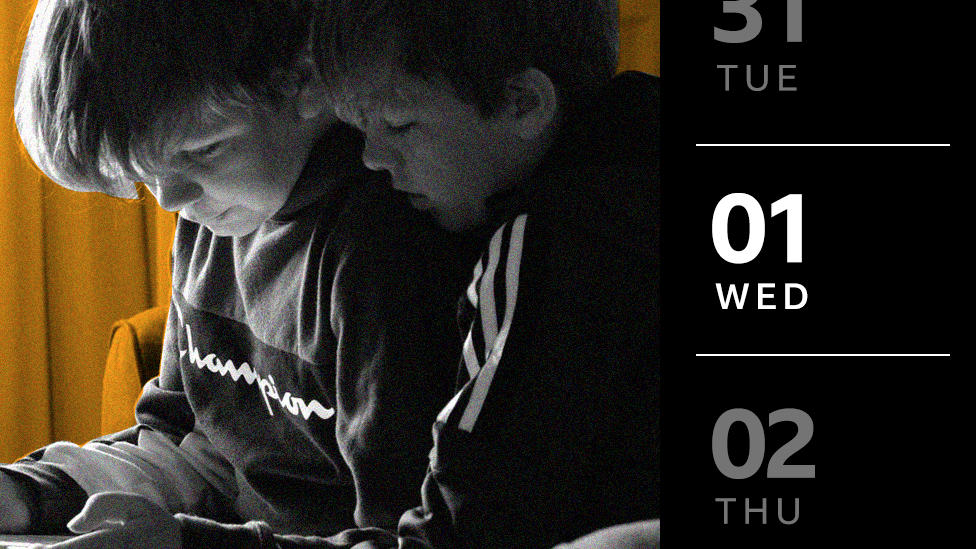Kent, Sussex and Surrey schools closed as teachers go on strike
- Published
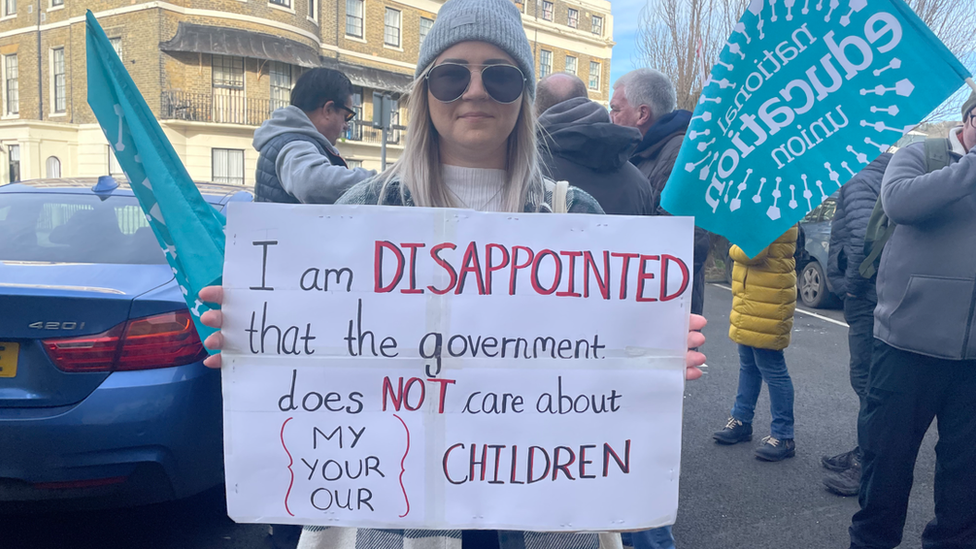
Protesters took to the streets in Dover
Teachers, train drivers, civil servants and university staff are on strike across the South East.
Train rivers who are members of Aslef have walked out over pay and conditions, affecting all Southeastern, Southern and Thameslink services.
Civil servants have also gone on strike at the Channel ports.
A government spokesman said: "The government has been preparing to do all it can to mitigate any disruption caused."
Teachers who are members of the National Education Union (NEU), have walked out affecting schools across Kent, Sussex and Surrey.
Staff outside Whitstable School said years 11, 12 and 13 were in school, but years seven to 10 were learning remotely.
Jennie Whittaker, a computer science teacher at the school, told BBC Radio Kent: "We'd much rather be in the classroom, but we're here because we want a better future for our children.
"We've had loads of emails of support from parents, who also want the best for their children."
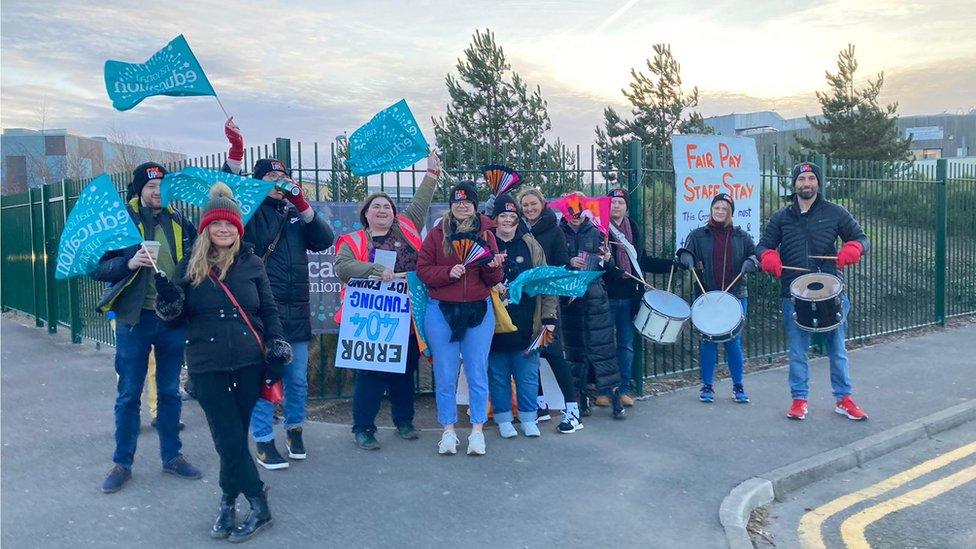
Striking teachers at Whitstable School were greeted by support from passing motorists
The Department for Education has offered a 5% pay rise to most teachers for the current school year, but the NEU is demanding a fully funded above-inflation pay rise for teachers.
Gillian Keegan, the education secretary and Chichester MP, said: "It's really disappointing. It's so disruptive. It's not a last resort. We are still in discussions."
Allow X content?
This article contains content provided by X. We ask for your permission before anything is loaded, as they may be using cookies and other technologies. You may want to read X’s cookie policy, external and privacy policy, external before accepting. To view this content choose ‘accept and continue’.
Mark Wignall, headteacher at Downlands Community School in Hassocks, told BBC Sussex he had no choice but to close the school.
"It was a really difficult decision," he said,
"But fundamentally the most important factor is the safety of the students."
He said some teachers had been affected by train strikes, and child care issues as a result of other schools being closed.
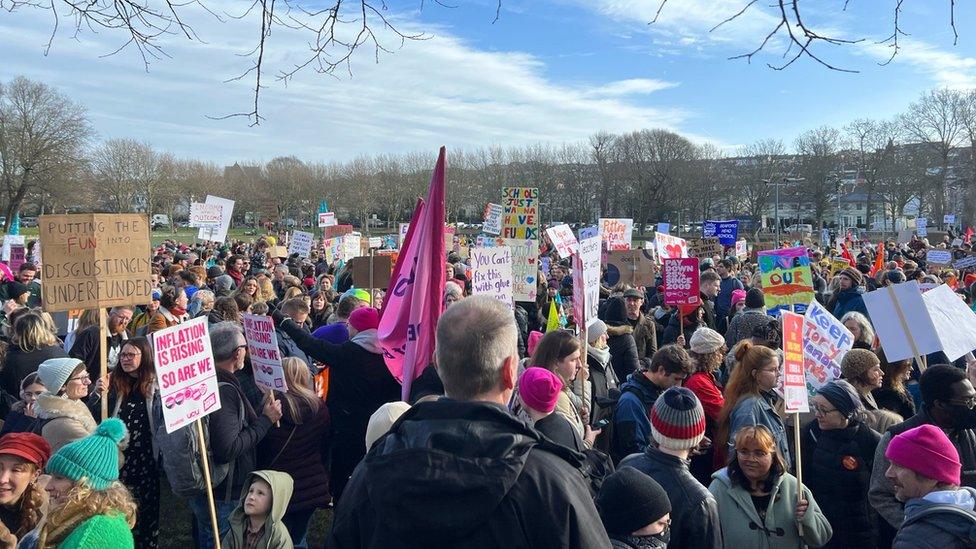
Hundreds of striking teachers marched through central Brighton
Train drivers in the Aslef and the Rail, Maritime and Transport (RMT) unions are embroiled in a long-running dispute over pay and conditions.
Angie Doll, chief operating officer of Govia Thameslink Railway said Southeastern and Thameslink passengers should seek alternative arrangements.
"Regrettably, we'll have no trains at all on Wednesday," she said.
South Western Railway said it was planning a full service through Surrey, but some connections may be affected by strike action on other operators' routes.

Analysis
By Charlotte Wright, BBC South East political editor, Dover
In Dover this morning dozens of people from multiple unions marched along the seafront, waving colourful flags and chanting "fair pay for fair conditions".
This is the first time this winter that teachers in the South East have joined other industries, including Border Force staff and train drivers, in a mass walkout.
The organisers of today's rallies intended to come together to show solidarity for each other and raise awareness among the public.
As they left the Eastern Docks, a passing car honked its horn and a runner stopped to clap. Those marching know reactions like these can play an important role.
Thousands more people will be affected by today's teachers' strike.
Ministers will be keeping a close eye on who the public blame for disruption and how, if at all, politically damaging that could be for the Government.

Members of the Public and Commercial Services union (PCS), including Border Force and coastguard staff, have also walked out.
Kevin Mills, branch secretary of the PCS said members of the union were being forced to use food banks, having been offered 2% pay increases over the last two years.
Michael Keohan, BBC Radio Kent's political reporter, said police and the council were prepared for disruption in Dover, with officers positioned near the port.
He said: "There's no real sign of a breakthrough, if you're hoping these strikes will come to an end soon."
The government spokesman also said "extensive contingency plans" were in place to deal with the strikes.
He added: "Of course, the best mitigation would be for union bosses to call off planned strikes, to keep talking and to come to an agreement."

Follow BBC South East on Facebook, external, on Twitter, external, and on Instagram, external. Send your story ideas to southeasttoday@bbc.co.uk, external.
Related topics
- Published1 February 2023
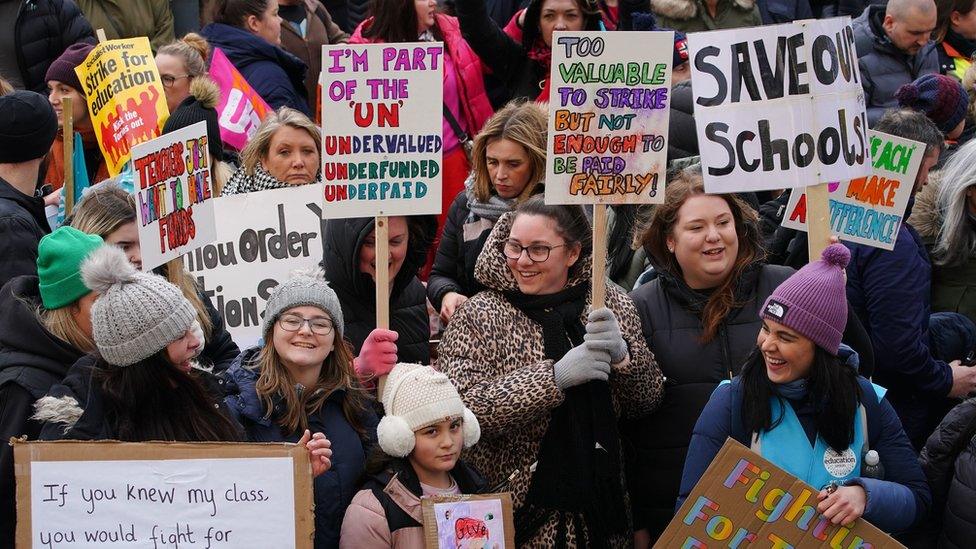
- Published31 January 2023
